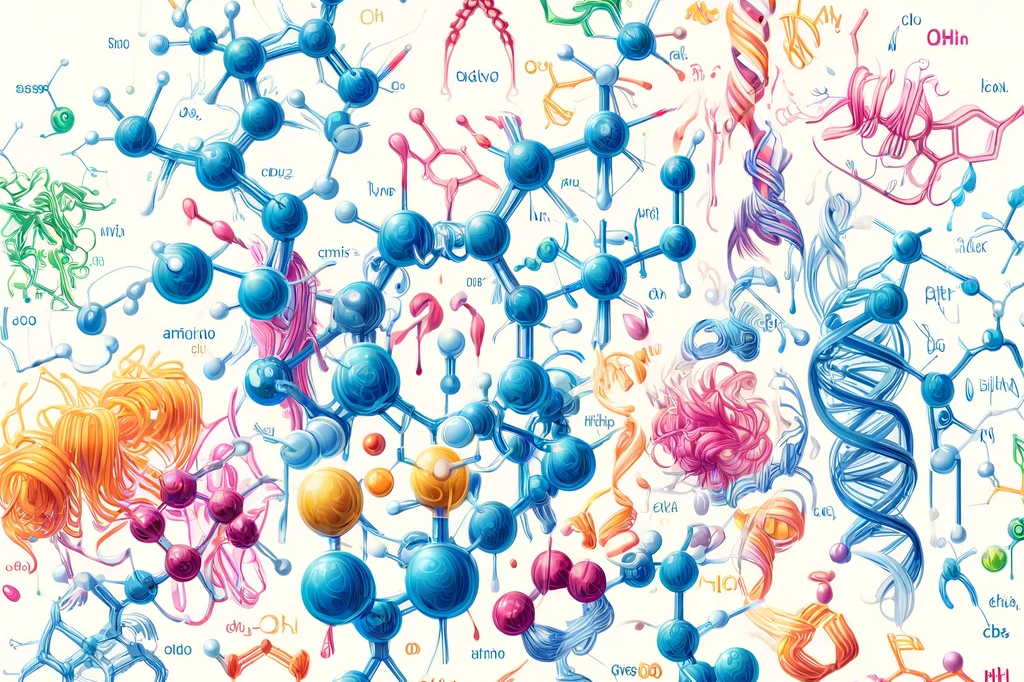Lysine

What is lysine?
Lysine is one of ten essential amino acids for dogs. This means that dogs cannot produce this amino acid themselves, but must obtain it from their diet. Amino acids are the building blocks of proteins, which are important for many functions in the body. Lysine, for example, is involved in the formation of collagen, an important component of connective tissue that strengthens skin, bones, tendons and cartilage. Lysine also helps with the absorption of calcium from the intestines, which is important for healthy teeth and bones. Lysine also supports the immune system by promoting the production of antibodies and inhibiting the multiplication of viruses. Lysine also serves as a starting material for the body's own carnitine synthesis, which is important for fat metabolism and energy production.
What are the benefits of lysine for dogs?
Lysine has many benefits for the health and well-being of dogs. Some of them are:
- Lysine strengthens the immune system and helps fight off infections, especially viral diseases such as herpes or parvovirosis.
- Lysine promotes wound healing and tissue regeneration by supporting the formation of collagen.
- Lysine improves calcium absorption and storage in the body, which ensures strong teeth and bones.
- Lysine supports fat metabolism and energy production by participating in carnitine synthesis.
- Lysine can positively influence the mood and behavior of dogs by being involved in the synthesis of neurotransmitters such as dopamine.
What are the disadvantages of lysine for dogs?
Lysine generally has no disadvantages for dogs as long as it is supplied in appropriate amounts. However, an overdose of lysine can lead to side effects such as diarrhea, vomiting or kidney problems. In addition, an excess of lysine can lead to a deficiency of another essential amino acid called arginine. Arginine is also important for the immune system and the nitrogen balance in the body. Care should therefore be taken to ensure that the ratio of lysine to arginine in the food is balanced.
How can dogs be given enough lysine?
The optimal amount of lysine for dogs depends on various factors, such as the dog's age, weight, state of health and activity level. However, a general recommendation is that an adult dog needs about 50 mg of lysine per kilogram of body weight per day. For a 10 kg dog, this would be about 500 mg of lysine per day.
The best source of lysine is animal proteins such as meat, fish, milk or eggs. These not only contain a lot of lysine, but also other essential amino acids that are important for dogs. Vegetable proteins such as pulses or cereals also contain lysine, but in smaller quantities and in a less favorable ratio to arginine. You should therefore make sure that your dog's food contains a high proportion of animal proteins.
In some cases, it may be useful to give dogs additional lysine as a dietary supplement. For example, if the dog has an infection, is recovering from an operation, is under stress or has reduced resistance. Lysine is available in various forms, such as tablets, capsules or powder, which can be added to the dog's food or water.
Lysine is an essential amino acid for dogs that has many benefits for the health and well-being of dogs. Lysine is involved in the formation of proteins, collagen and antibodies, promotes calcium absorption and storage, supports fat metabolism and energy production and positively influences the mood and behavior of dogs. Lysine can be supplied to dogs through their diet, especially through animal proteins such as meat, fish, milk or eggs. In some situations, it can also be useful to give dogs additional lysine as a dietary supplement to strengthen the immune system or promote recovery. However, you should always ensure an appropriate dosage and keep an eye on the ratio of lysine to arginine.
If you notice any signs of hypersensitivity or poisoning in your dog, you should see your vet immediately. We are not a substitute for a vet, but we try to be as accurate as possible. Every dog reacts differently and we recommend you get a second opinion or consult your vet if in doubt.
Stay healthy and take good care of your four-legged friend!😊
Similar to Lysine
Methionine is one of the 20 amino acids that serve as building blocks for proteins. Proteins in turn are responsible for the structure and function of cells, tissues and organs. Methionine is one of...
Threonine is an essential amino acid, which means that it is vital for the body but cannot be produced by the body itself. It must therefore be obtained from food. Threonine plays a central role in...
Leucine is one of the branched-chain amino acids (BCAAs) that are essential for protein biosynthesis in the body. It cannot be produced by the body itself and must therefore be obtained from food....
Isoleucine is one of nine essential amino acids that the body can neither produce nor replace. It must therefore be obtained from food. Isoleucine is known for its role in muscle metabolism and...



